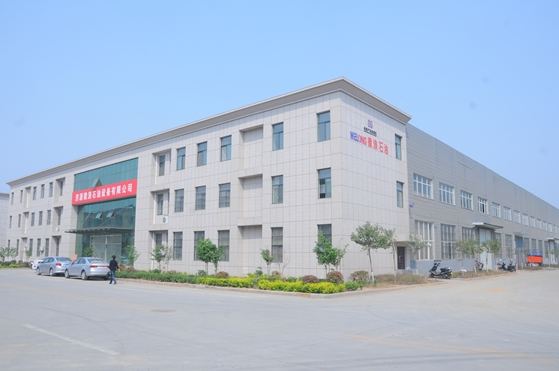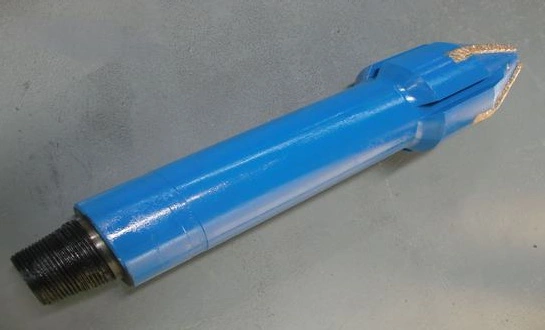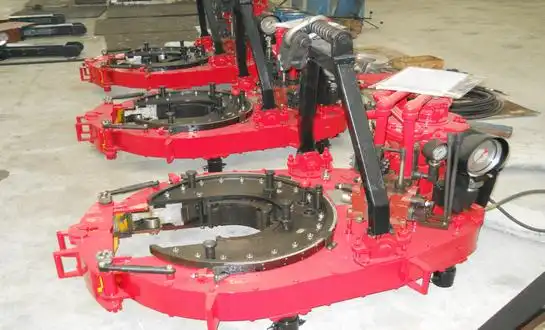Flexible hoses, also known as hydraulic hoses in some contexts, are indispensable components in the petroleum industry. They serve multiple purposes, from transferring crude oil and refined products to facilitating the movement of various fluids in drilling operations. The versatility of these hoses lies in their ability to withstand extreme conditions while maintaining flexibility, a characteristic that rigid piping systems cannot match. As we navigate through this guide, we'll explore the key standards, certifications, and international regulations that ensure these critical components meet the stringent requirements of the petroleum sector.
What are the key standards governing flexible hoses in the petroleum sector?
ASME B31.3: Process Piping
The ASME B31.3 standard is widely regarded as one of the most critical frameworks for regulating flexible hoses used in various industrial sectors, especially the petroleum and chemical industries. It provides a comprehensive approach to the design, materials, fabrication, assembly, erection, inspection, and testing of piping systems, including flexible hoses. These hoses are essential components in petroleum refineries and chemical plants, where they are used to transport fluids under varying pressures and temperatures. ASME B31.3 ensures that these hoses meet stringent requirements for pressure-temperature ratings, material selection, and testing procedures, guaranteeing their ability to endure the demanding conditions of the petroleum industry. The standard covers aspects such as mechanical strength, corrosion resistance, and flexibility, ensuring that hoses function reliably throughout their service life. Moreover, it outlines the necessary inspection and testing methods to ensure that flexible hoses are safe and durable, even in the most hazardous environments.
API Specification 7K: Drilling and Well Servicing Equipment
API Specification 7K plays a vital role in regulating flexible hoses used in drilling operations. These hoses are subjected to extreme conditions, including high pressures, abrasive materials, and fluctuating temperatures. The API 7K standard defines the design, manufacturing processes, and quality control measures necessary for hoses to withstand the rigorous demands of rotary drilling systems. This standard ensures that flexible hoses used in drilling and well servicing applications are built to withstand the high stresses encountered during operations. The specification provides detailed requirements on materials, pressure ratings, and testing procedures to ensure hoses can perform reliably in environments where safety and performance are paramount. It also emphasizes the importance of regular inspections and maintenance to detect early signs of wear and prevent failure during critical operations.

ISO 10380: Pipework - Corrugated Metal Hoses and Hose Assemblies
ISO 10380 is an important standard for flexible metal hoses used in the petroleum industry, particularly for applications that involve high-pressure systems and extreme temperatures. The standard outlines the requirements for the design, testing, and marking of corrugated metal hoses and hose assemblies. Flexible metal hoses are commonly used in petroleum applications due to their ability to handle a wide range of pressures and temperatures, making them ideal for environments such as refineries, offshore platforms, and drilling rigs. ISO 10380 addresses key factors like pressure ratings, temperature limits, and fatigue resistance, ensuring that these hoses are capable of withstanding the cyclic loading they often experience. The standard also covers the necessary testing methods to assess the durability and performance of these hoses under extreme conditions. By providing clear guidelines on manufacturing and inspection, ISO 10380 ensures that flexible metal hoses maintain their integrity and reliability throughout their lifecycle.
Understanding API and ISO certifications for flexible hoses
API Q1: Quality Management System Requirements for Manufacturing Organizations
API Q1 certification is a hallmark of quality in the petroleum industry. For manufacturers of flexible hoses, this certification demonstrates adherence to a comprehensive quality management system specifically tailored to the oil and gas sector. It encompasses aspects such as risk assessment, product quality planning, and continuous improvement processes. Hose manufacturers with API Q1 certification are recognized for their commitment to producing high-quality products that meet the exacting standards of the petroleum industry.
ISO 9001: Quality Management Systems
While not specific to the petroleum industry, ISO 9001 certification is universally recognized as a benchmark for quality management systems. For flexible hose manufacturers, this certification signifies a systematic approach to ensuring product quality, customer satisfaction, and continuous improvement. In the context of petroleum applications, ISO 9001 certification provides assurance that the hose manufacturer has robust processes in place to consistently meet customer and regulatory requirements.
API Spec 16D: Control Systems for Drilling Well Control Equipment and Control Systems for Diverter Equipment
Although primarily focused on control systems, API Spec 16D has significant implications for flexible hoses used in drilling operations. This specification sets forth requirements for control systems used in well control equipment, including the hoses that form part of these systems. Compliance with API Spec 16D ensures that flexible hoses used in critical well control applications meet the stringent safety and performance standards necessary for offshore and onshore drilling operations.
Navigating international standards for flexible hose usage in oil and gas
NORSOK Standard P-001: Process Design
The Norwegian petroleum industry standard, NORSOK P-001, provides guidelines for process design in offshore installations. While not exclusively focused on flexible hoses, this standard includes important considerations for the selection and use of hoses in offshore petroleum processing systems. It addresses factors such as material compatibility, pressure ratings, and safety systems, all of which are crucial when implementing flexible hoses in offshore environments.
EN 13765: Thermoplastic multi-layer (non-vulcanized) hoses and hose assemblies for the transfer of hydrocarbons, solvents and chemicals
This European standard is particularly relevant for flexible hoses used in the transfer of petroleum products and chemicals. EN 13765 specifies requirements for the construction, performance, and testing of multi-layer thermoplastic hoses. It addresses critical aspects such as chemical compatibility, electrical continuity, and burst pressure resistance, ensuring that hoses used for hydrocarbon transfer meet the stringent safety and performance requirements of the petroleum industry.
OCIMF: Guide to Manufacturing and Purchasing Hoses for Offshore Moorings
The Oil Companies International Marine Forum (OCIMF) guide, while focused on offshore mooring applications, provides valuable insights applicable to flexible hoses used in marine petroleum transfer operations. This comprehensive guide covers aspects such as hose design, material selection, testing procedures, and quality assurance measures. It's an essential resource for understanding the specific requirements of flexible hoses used in offshore petroleum loading and unloading operations.
Source: CHINA WELONG-Oilfield tools Manufacturer
FAQ about flexible hose
What are the primary materials used in flexible hoses for petroleum applications?
Flexible hoses in the petroleum industry are typically constructed using materials that can withstand harsh chemical environments and extreme temperatures. Common materials include:
- Stainless steel: Offers excellent corrosion resistance and high-temperature capabilities.
- PTFE (Polytetrafluoroethylene): Known for its chemical inertness and wide temperature range.
- Nitrile rubber: Provides good resistance to petroleum-based fluids.
- Fluoroelastomers: Offer exceptional chemical resistance and high-temperature performance.
How often should flexible hoses be inspected and replaced in petroleum operations?
The inspection and replacement frequency of flexible hoses in petroleum operations depend on several factors, including:
- Operating conditions: Higher pressures and temperatures may necessitate more frequent inspections.
- Chemical exposure: Aggressive chemicals can degrade hose materials more rapidly.
- Usage patterns: Hoses subjected to frequent bending or movement may require more frequent checks.
- Regulatory requirements: Some jurisdictions mandate specific inspection intervals.
Generally, a thorough visual inspection should be conducted at least annually, with more frequent checks in critical applications. Many operators follow a risk-based inspection approach, tailoring inspection frequencies to specific operational conditions and risk factors.
What are the key considerations when selecting flexible hoses for high-pressure petroleum applications?
When choosing flexible hoses for high-pressure petroleum applications, several critical factors must be considered:
- Pressure rating: The hose must be rated to withstand the maximum system pressure with an appropriate safety factor.
- Temperature range: Ensure the hose material is suitable for both the fluid and ambient temperatures.
- Chemical compatibility: The hose must resist degradation from the petroleum products being transferred.
- Flexibility requirements: Consider the degree of flexibility needed for the specific application.
- Abrasion resistance: In applications with potential for mechanical wear, abrasion-resistant outer layers may be necessary.
- Electrical conductivity: To prevent static build-up, hoses should have appropriate electrical properties.
- Compliance with relevant standards: Ensure the hose meets or exceeds all applicable industry standards and regulations.
In conclusion, navigating the complex landscape of flexible hose standards in the petroleum industry requires a thorough understanding of various national and international regulations. From API and ISO certifications to specific standards like ASME B31.3 and EN 13765, each plays a crucial role in ensuring the safety, reliability, and efficiency of petroleum operations. By adhering to these standards, industry professionals can make informed decisions in selecting, installing, and maintaining flexible hoses, ultimately contributing to safer and more productive petroleum operations. China Welong is a professional international oilfield products and customized products provider. For more information on high-quality flexible hoses and other oilfield products that meet these rigorous standards, please contact us at oiltools15@welongpost.com.
References
- API 17B, "Recommended Practice for Flexible Pipe," American Petroleum Institute, 2021.
- ISO 10380, "Flexible Hose Assemblies – Rubber and Thermoplastic," International Organization for Standardization, 2014.
- ASME B31.3, "Process Piping," American Society of Mechanical Engineers, 2018.
- SAE J517, "Hydraulic Hose," Society of Automotive Engineers, 2018.
- ASTM D380, "Standard Test Methods for Rubber Hose," ASTM International, 2019.
- NACE SP0502, "Petroleum and Natural Gas Industries – Cathodic Protection of Petroleum and Natural Gas Pipeline Systems," NACE International, 2020.




